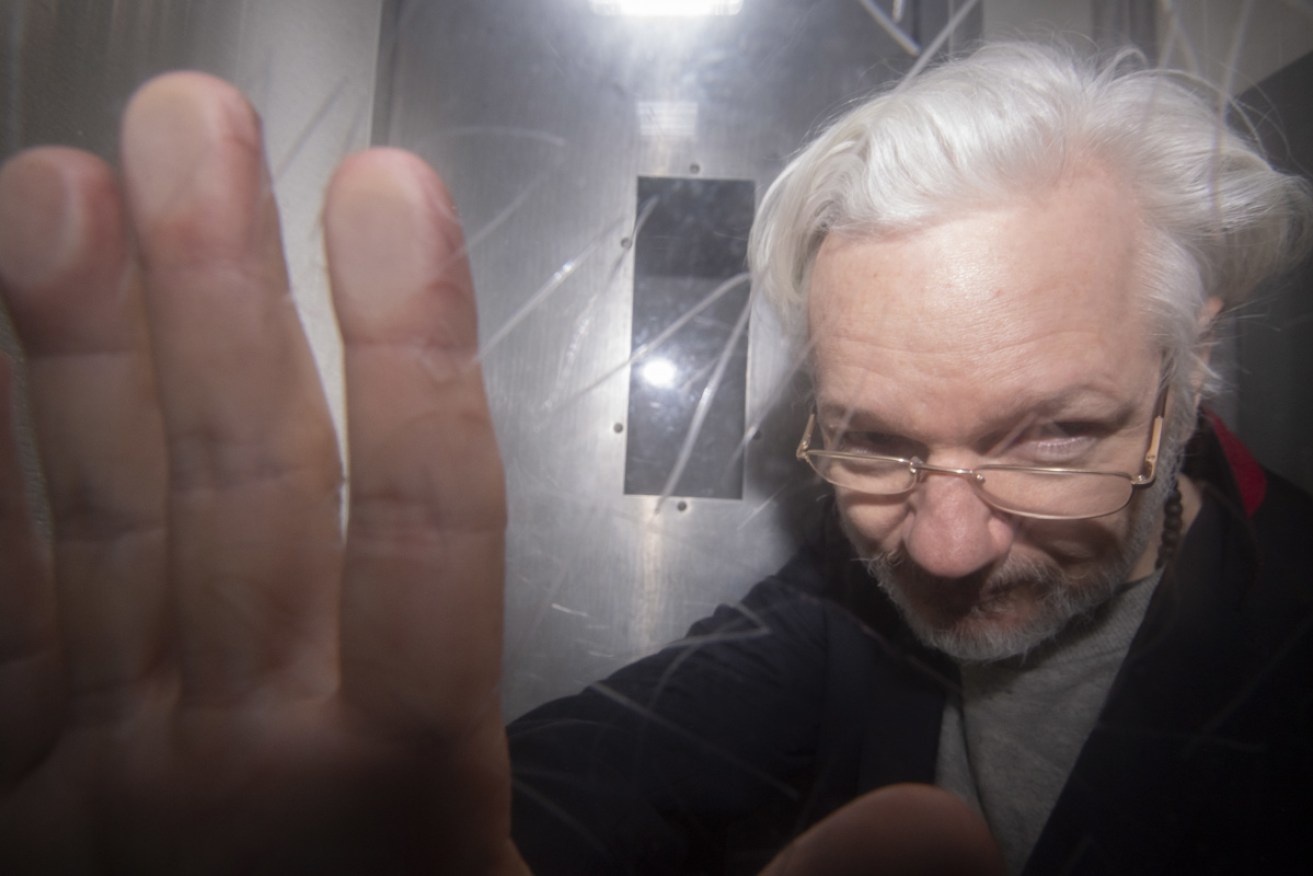Julian Assange denied bail in UK amid coronavirus pandemic


Julian Assange. Photo: AAP
WikiLeaks founder Julian Assange has been denied bail after his lawyers said he should be released because he was at “high risk” of contracting the coronavirus in prison.
The Australian made the application in the Westminster Magistrates Court on Wednesday, with less than 15 people in attendance due to the coronavirus lockdown.
District Judge Vanessa Baraitser ruled that Mr Assange had absconded before and said that Belmarsh prison is following government guidelines to protect detainees with no confirmed virus cases there yet.
She accepted that government advice may change rapidly but for the time being she denied strict bail for the 48-year-old.
“As matters stand today this global pandemic does not, of itself, yet provide grounds for Mr Assange’s release,” Judge Baraitser ruled.
“In my view there are substantial grounds to believe that if released today he would not return to face his extradition hearing.
“There are no conditions that allay this concern and this application is therefore refused.”
Defence lawyer Edward Fitzgerald QC wore a face mask and his colleague Mark Summers attended via Zoom, while US government lawyers dialled in.
Mr Fitzgerald said Mr Assange has prior chest and tooth infections, and osteoporosis, placing him at a higher risk from the virus.
The QC described prisons as “epidemiological pumps” where diseases spread rapidly and said the defence team had recently been denied entry to Belmarsh because 100 prison staff were self-isolating.
“If he continues to be detained in prison … there is a real risk that his health and his life will be seriously endangered in circumstances from which he cannot escape,” Mr Fitzgerald told the court.
The lawyer also raised the prospect of Mr Assange’s next extradition hearing on May 18 being postponed due to lockdown measures.
He said witnesses overseas could be unable to travel and Mr Assange may be unable to meet his counsel in the locked-down prison.
Clair Dobbin for the US government, said Mr Assange’s history showed the high risk he would abscond.
Mr Assange remained holed up in the embassy for seven years. He was eventually dragged out after Ecuador revoked his asylum.
“There are insurmountable hurdles for Mr Assange being granted bail,” Ms Dobbin said.
“He has been tested before and failed.”
‘For we wrestle not against flesh & blood, but against principalities, against powers, against the rulers of the darkness of this world, against spiritual wickedness in high places’
Eph 6:12We fight on for you Julian..#FreeAssange#NoUSExtradition#BringJulianHome pic.twitter.com/M6NRxjniS8
— Mrs Christine Assange (@MrsC_Assange) March 25, 2020
But Mr Fitzgerald insisted that Mr Assange’s past actions should not be a basis for refusing bail.
“The focus of someone in his vulnerable position, with his family ties here, is on survival, not on absconsion,” he said.
The defence also revealed that Mr Assange had a partner and at least two children living in the UK.

A mask-wearing supporter of Julian Assange outside court. Photo: AAP
Last month, Mr Assange’s bid to leave the dock and sit with his lawyers in court was also knocked back by Judge Baraitser.
The US government is trying to extradite Mr Assange to face 17 charges of violating the Espionage Act and one of conspiring to commit computer intrusion over the leaking and publishing of thousands of classified US diplomatic and military files.
Related: Assange begins fight against US extradition
Some of those files revealed alleged US war crimes in Iraq and Afghanistan.
The charges carry a total of 175 years’ imprisonment.
Last month, an Australian delegation of politicians paid the WikiLeaks founder a visit in a show of support.
His extradition case was adjourned until April 7.
–with agencies








